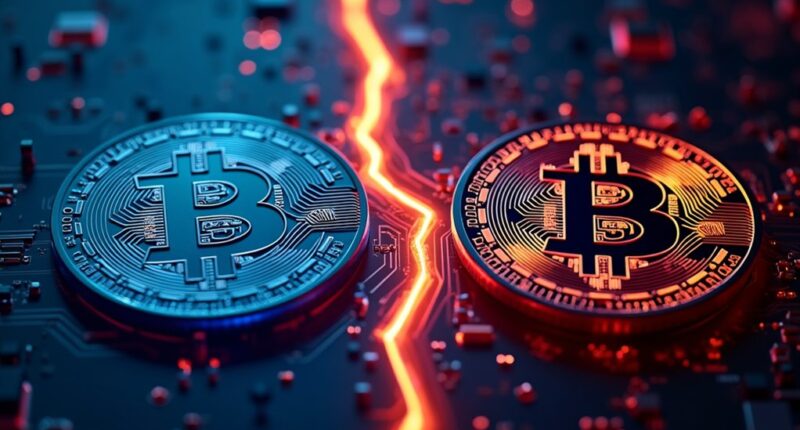How do divergent philosophies shape the evolution of Bitcoin software clients? The ongoing contention between Bitcoin Core and Bitcoin Knots exemplifies how foundational ideological differences influence protocol development and network governance. Bitcoin Core promotes a relatively permissive approach, advocating for open network participation conditioned primarily on transaction fees, therefore endorsing minimal restrictions to preserve broad usability. By contrast, Bitcoin Knots prioritizes rigorous anti-spam measures and network scalability, implementing tighter constraints such as a 42-byte cap on OP_RETURN data, sharply contrasting with Core’s plan to eliminate the 80-byte limit entirely in its forthcoming v30 release. This debate centers heavily on the use of the OP_RETURN opcode, which was originally introduced to allow small amounts of metadata without bloating the UTXO set, underscoring the technical roots of the dispute around data storage on-chain OP_RETURN function. Notably, Kaspa’s focus on scalability addresses similar blockchain limitations like slow transaction speeds, highlighting broader network challenges.
This clash reflects deeper tensions regarding decentralization and transaction policy. Proponents of Core’s removal of OP_RETURN size limits, including notable figures like Peter Todd, argue that lifting these caps facilitates advanced applications such as zero-knowledge rollups without exacerbating the unspent transaction output (UTXO) set’s growth. However, critics, led by Knots developer Luke Dashjr, caution that larger on-chain data payloads could incentivize spam, potentially burdening the network and undermining its integrity. The resulting polarization has propelled Knots’ node share from a marginal 0.3% in 2023 to nearly 17% by mid-2025, evidencing a tangible shift in operator preferences toward more conservative consensus adjustments. Core’s philosophy favors open usage of Bitcoin as long as transaction fees are paid, promoting broader utility and innovation within the network open usage philosophy.
Debate over OP_RETURN limits reveals deep divides in decentralization and transaction policy within Bitcoin’s community.
The impending Bitcoin Core v30 release intensifies concerns over network stability, as discrepancies in protocol enforcement may trigger transaction rejection conflicts or even a network split. This fragmentation risk underscores the delicate balance between fostering software diversity and maintaining cohesive consensus. Dashjr emphasizes the necessity of widespread full node operation—ideally encompassing 85% of economic activity—to safeguard Bitcoin’s resilience, warning that declining node counts imperil the system’s future. Meanwhile, the rapid growth in network hashrate seen in other projects like Kaspa, increasing over 1000% in early 2024, demonstrates how mining dynamics can also significantly impact network security and stability network hashrate growth.
Security considerations further complicate this landscape. Critics argue that Knots nodes, particularly those on residential internet connections with default settings, could be more vulnerable to denial-of-service attacks, necessitating manual mitigation techniques. While Core remains the dominant client, its waning market share highlights the community’s ongoing debate over how best to reconcile innovation with stability, uniformity with pluralism, and scalability with security in Bitcoin’s evolving ecosystem.









